-
Israëlische schendingen januari 2023
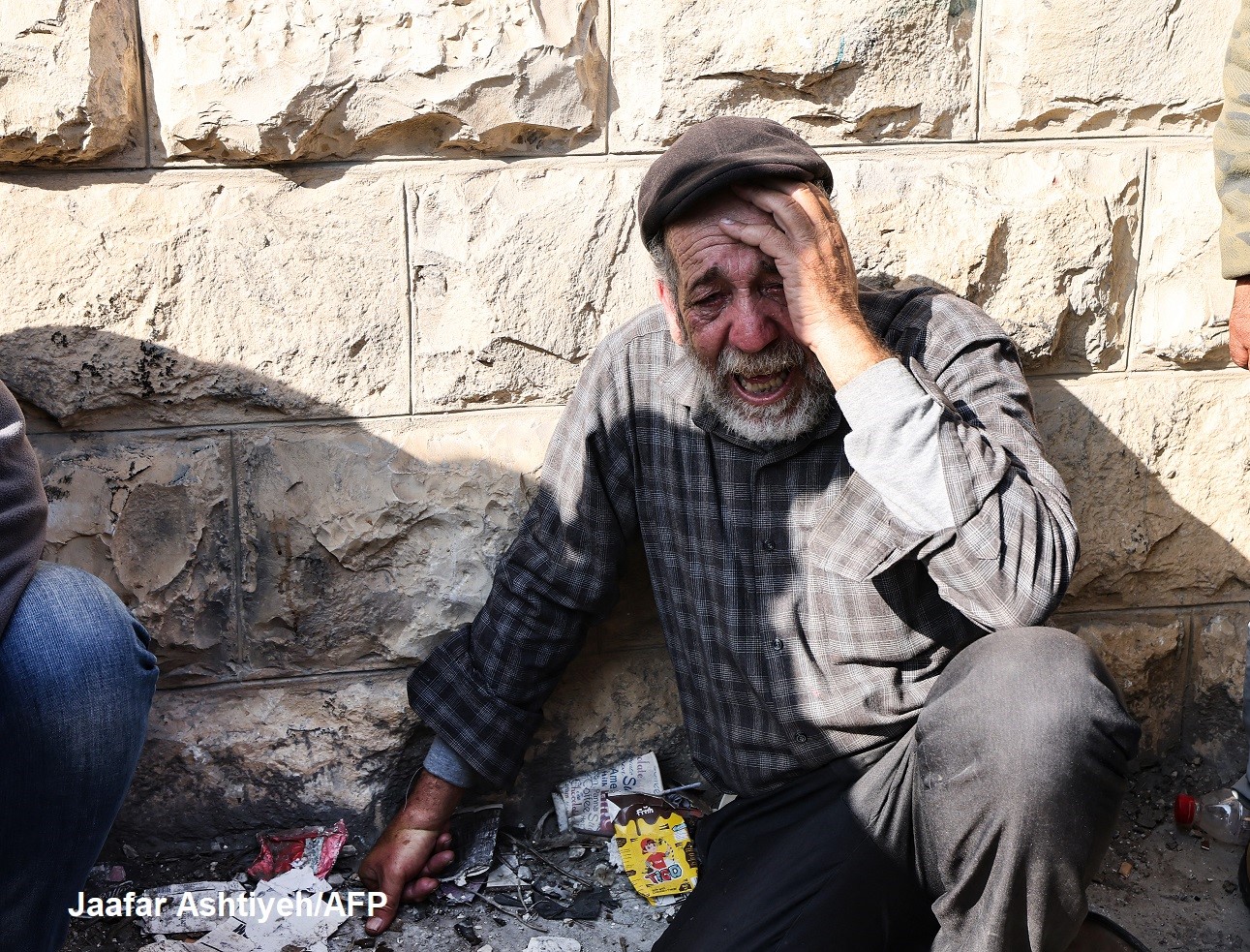
In januari 2023 documenteerde Staat van Beleg 2,505 Israëlische schendingen jegens het Palestijnse volk. Dodelijkste maand sinds 2015 In januari kwamen er 41 Palestijnen om het leven als gevolg van Israëlisch geweld, waarmee het de dodelijkste maand voor Palestijnen op de Westelijke Jordaanoever en Oost-Jeruzalem is sinds 2015. Zes van de slachtoffers waren minderjarig, de jongste…
-
Israeli violations January 2023

In January 2023 Staat van Beleg documented 2,505 Israeli violations of human rights against the Palestinian people. Deadliest month since 2015 In January, 41 Palestinians lost their lives due to Israeli violence, making it the deadliest month for Palestinians in the West Bank and East Jerusalem since 2015. Six of the victims were minors, with the youngest…
-
Het jaar 2022 in cijfers
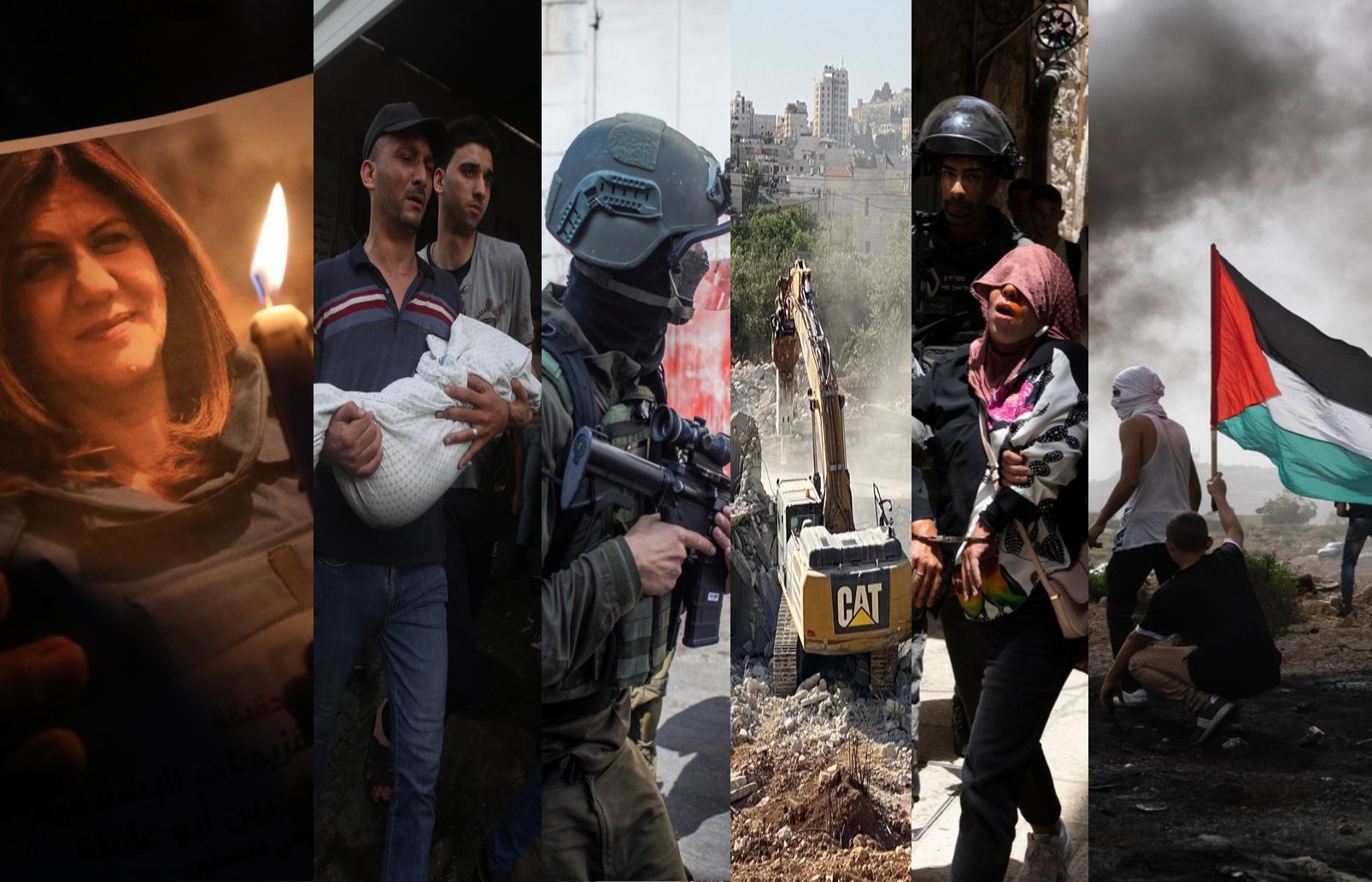
Het was het jaar waarin Al Jazeera-journaliste Shireen Abu Aqleh werd vermoord door Israëlische soldaten. De enige moord die wereldwijde aandacht kreeg en overal door alle reguliere media werd gedekt. Je zou denken dat zo’n moord zelden voorkomt. Maar niets is minder waar. Shireen was slechts een van de 165 Palestijnen die in 2022 werden…
-
The year 2022 in numbers

It was the year in which Al Jazeera journalist Shireen Abu Aqleh was killed by Israeli soldiers. The one murder that got worldwide attention and was covered by all the mainstream media outlets everywhere. One would think that a murder like that is a rare occurrence. It’s not. Shireen was one of 165 Palestinians who…
-
Israëlische schendingen november 2022
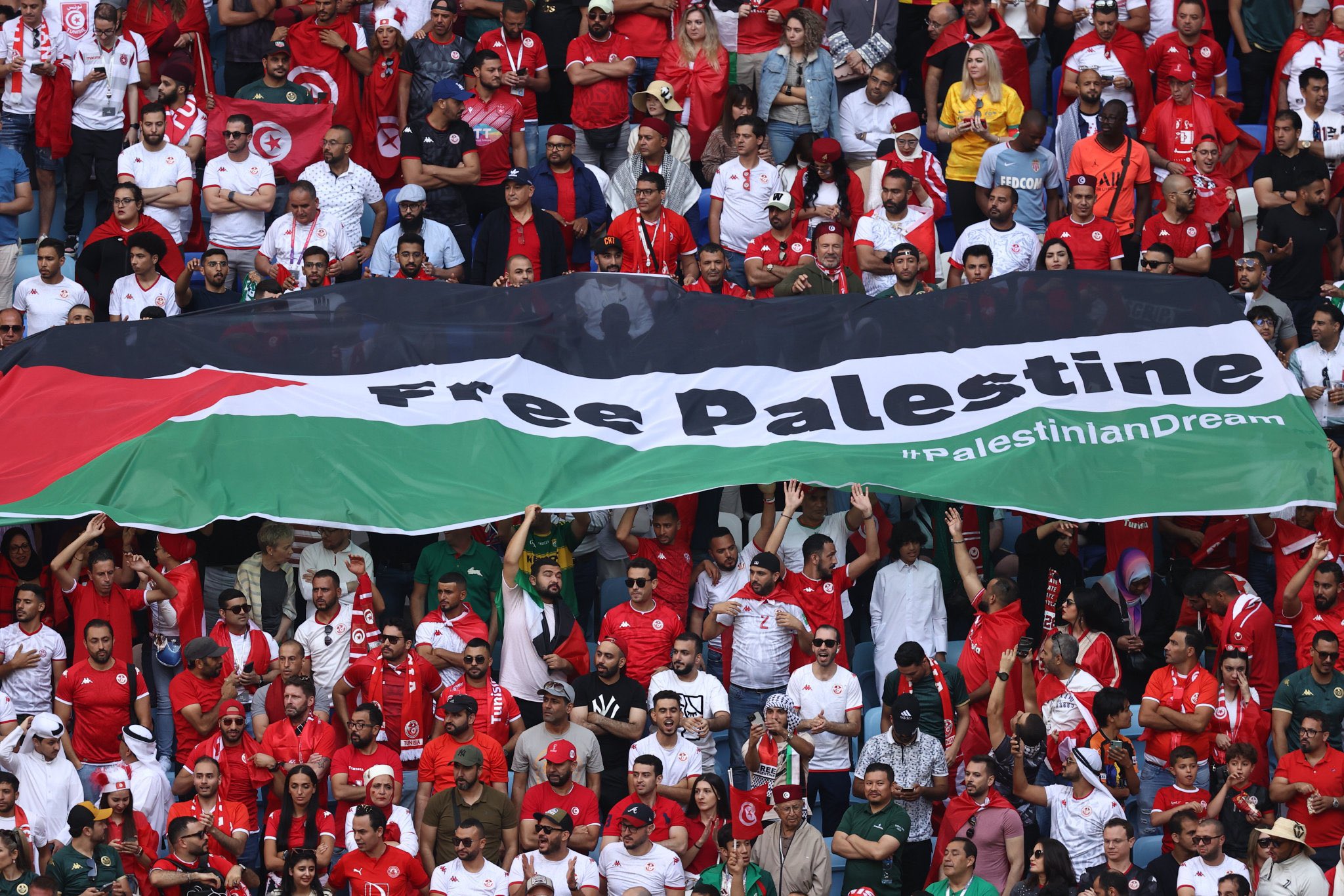
In november 2022 documenteerde Staat van Beleg 2,543 Israëlische mensenrechtenschendingen jegens het Palestijnse volk. Voor meer informatie over de Israëlische schendingen, zie ons archief of bekijk de maandelijkse rapportages van de ‘Negotiations Affairs Department’. Een selectie van de schendingen in november 2022 Dodelijke slachtoffers Een 13-jarig Palestijns kind uit de Negev stierf tijdens een operatie in het Israëlische Soroka Medical…
-
Israeli violations November 2022

In November 2022 Staat van Beleg documented 2,543 Israeli violations of human rights against the Palestinian people. For more information about Israeli violations on the Palestinian people, see our archive or see the monthly reports of the Negotiations Affairs Department. A small selection human rights violations in November 2022 Deadly victims A 13-year-old Palestinian child from the Negev died during surgery…
-
Israëlische schendingen oktober 2022
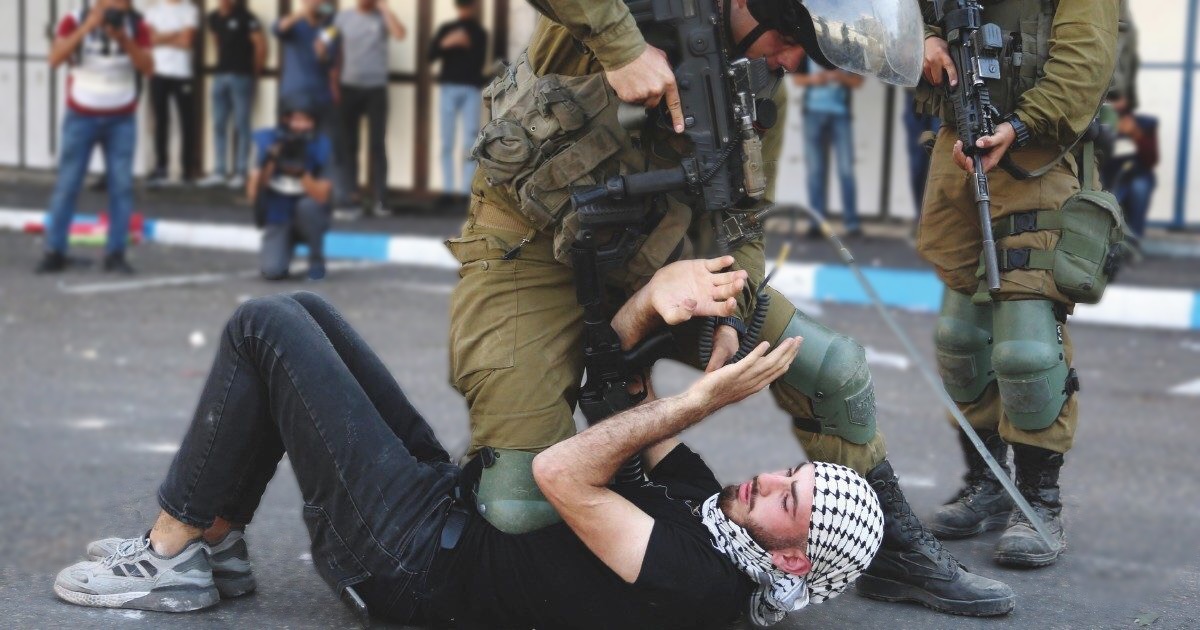
In oktober 2022 documenteerde Staat van Beleg 4.204 Israëlische mensenrechtenschendingen jegens het Palestijnse volk. Voor meer informatie over de Israëlische schendingen, zie ons archief of bekijk de maandelijkse rapportages van de ‘Negotiations Affairs Department’. Een kleine greep uit de schendingen in oktober 2022 Dodelijke slachtoffers Israëlische troepen doodden vorige maand 29 Palestijnen op de Westelijke Jordaanoever, waarmee oktober…
-
Israeli violations October 2022

In October 2022 Staat van Beleg documented 4,202 Israeli violations of human rights against the Palestinian people. For more information about Israeli violations on the Palestinian people, see our archive or see the monthly reports of the Negotiations Affairs Department. A small selection of the violations in October 2022 Deadly victims Israeli forces killed 29 Palestinians in the West Bank last…
-
Israëlische schendingen september 2022
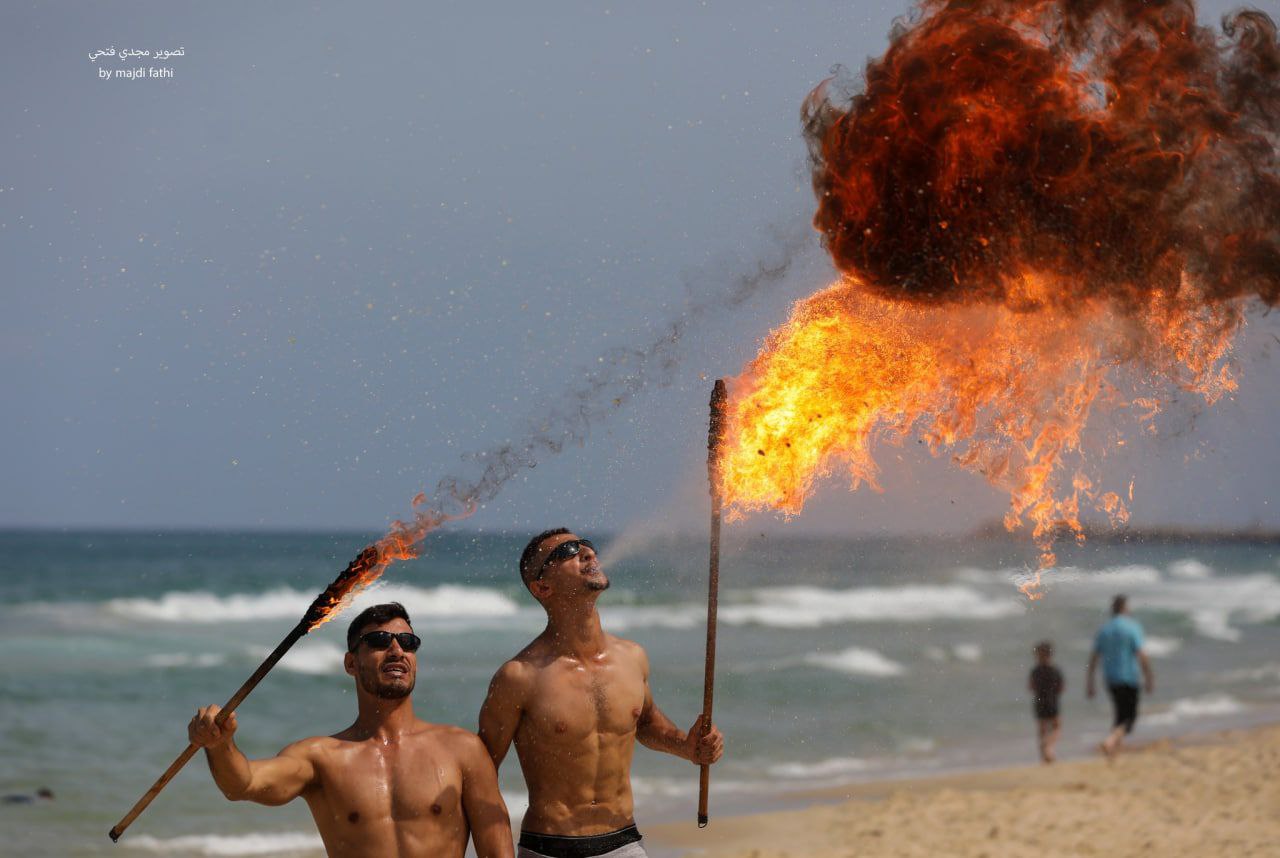
In September 2022 documenteerde Staat van Beleg 3.422 Israelische mensenrechtenschendingen tegen het Palestijnse volk. Voor meer informatie over Israëlische schendingen jegens het Palestijnse volk, zie ons archief of bekijk de maandelijkse rapporten van de Negotiations Affairs Department. Een greep uit de mensenrechtenschendingen in september 2022 Dodelijke slachtoffers Op 8 september werd een 17-jarige Palestijnse tiener doodgeschoten door Israëlische troepen in…
-
Israeli violations September 2022

In September 2022 Staat van Beleg documented 3,422 Israeli violations of human rights against the Palestinian people. For more information about Israeli violations on the Palestinian people, see our archive or see the monthly reports of the Negotiations Affairs Department. A small selection of the violations in September 2022 Deadly victims On September 8, a 17-year old Palestinian teenager was shot…
